加密飞行 Vol.14 | 我要三十五岁退休,去海上开船:Dominic Tarr
“放下电脑,去太平洋。”
Crypto Flight Vol.14 | Interview with Dominic Tarr: I'm going to retire at the age of thirty and go to sea to captain a ship
Abstract: Put down the computer, Go to the Pacific Ocean.
"Crypto Flight" is a series of interviews by Uncommons, focusing on pioneers active in the Ethereum and crypto world. It documents the reality of the crypto space and produces diverse perspectives, using conversation and everyday language as methods to distill distant and far-off truths. Inspired by Antoine de Saint-Exupéry's Vol de Nuit (Night Flight), it symbolizes the challenge and exploratory spirit of cypherpunks and crypto citizens as they venture to the ends of the world.
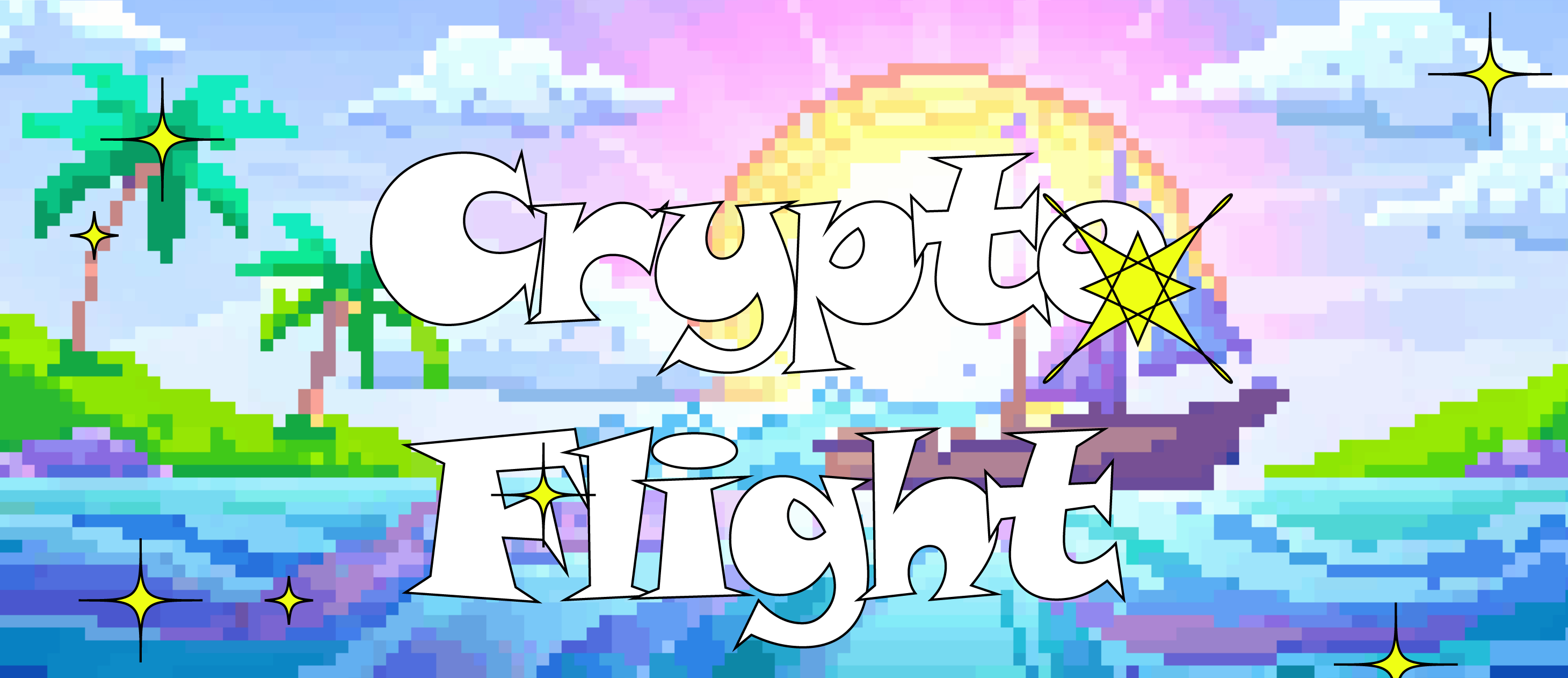
住在船上,开一颗野生椰子
Living on a Boat, Cracking a Wild Coconut
放下电脑,去太平洋大航海
Leaving the laptop behind, setting sail across the Pacific
船与工具,个人的技术史
Boats and Tools — a personal history of technology
追忆逝水年华:Scuttlebutt
In Search of Lost Time: Scuttlebutt
船长会拥有AI大副吗?
Will the captain one day have an AI first mate?
航海故事中的主角,总是先于其事迹而被记叙。这次降落加密飞行的,既是一位奥德修斯,也是一名菲利普·迪克笔下的天才工程师,为了寻找他的藏宝图,穿梭于光影交错的夜之城。只不过,这次的舞台更大,更辽阔,更不可想象;太平洋诸岛上的灯塔在黑夜中熊熊燃烧,代码和航线平等地编织着人类在这个星球上构造的乐园。Dominic Tarr手捧椰子,乘着数据流航向古老而神秘的真实之海,向我们娓娓讲述如今他所获得的另一极人生。离开电脑桌后,他迷上了考古学和航海史。在真正的沙滩上,他忘我地寻找着那些古老陶片,兽骨与石器,而这些珍贵的宝藏中,也不乏古老的航海歌谣,漂流的AI agent,以及从Scuttlebutt时代留存下来的思想痕迹。
The protagonist in every tale of the sea is always remembered before his deeds are told.This time, the one who lands from the voyage of Crypto Flight is both an Odysseus and a Philip K. Dick–like engineer — a wanderer and a visionary, tracing his treasure map through the neon haze of the nocturnal city. Yet this stage is grander, wider, and far more unimaginable. Across the Pacific archipelago, lighthouses blaze fiercely in the dark, while codes and sea routes together weave a paradise of human making upon this planet.
Dominic Tarr, holding a coconut in his hand, sails upon the currents of data toward the ancient and mysterious sea of the real. There, he recounts to us the story of another life he has discovered — one lived at the opposite pole. Away from his computer desk, he has fallen in love with archaeology and the history of navigation. On real beaches, he searches with devotion for ancient shards of pottery, animal bones, and stone tools. Among these treasures lie not only echoes of old sea shanties, but also drifting AI agents and lingering traces of thought from the Scuttlebutt era.
Social Layer × Uncommons
Reporter: Jiang
Translator: Eva
Edit: Shiyu
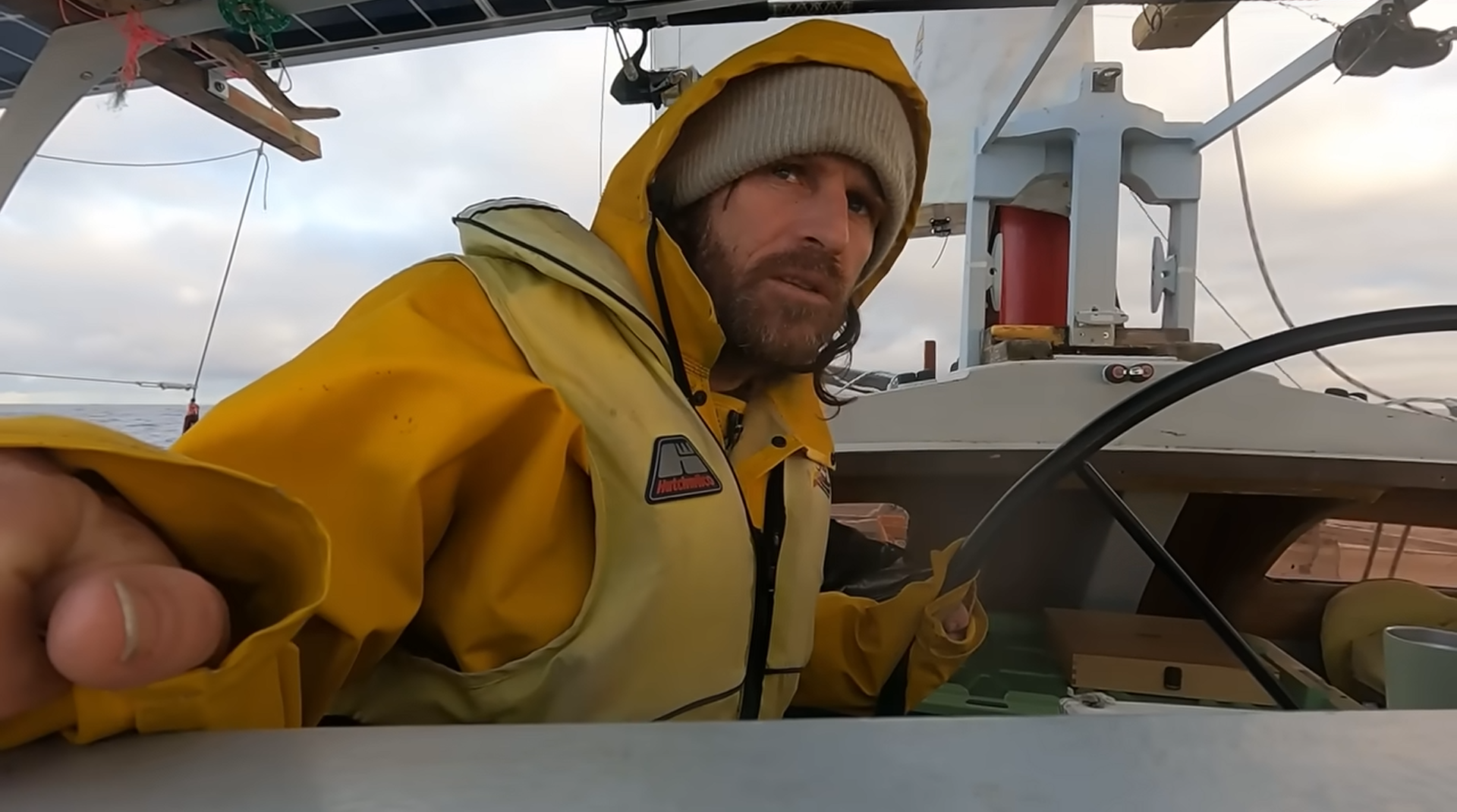
About
Dominic Tarr
知名 JavaScript 开发者,创建了去中心化社交网络 Secure Scuttlebutt(SSB)并发展了一个活跃的社区,并推动了去中心化思潮的发展,倡导模块化编程并发布了超过600个开源的代码模块。
A well-known JavaScript developer, created the decentralized social network Secure Scuttlebutt (SSB) and developed an active community. He has also promoted the trend of decentralization, advocated for modular programming, and released over 600 open-source code modules.
He's Youtube Channel👇
https://www.youtube.com/@dominictarrsailing
Jiang
Contributor of Social Layer
住在船上,开一颗野生椰子
Living on a Boat, Cracking a Wild Coconut
J: 好久不见,你仍然在斐济航行吗?
Hi Dominic, long time no see. You are in Fiji?
D: 当然。虽说这不是我平时的船。但眼下我是这艘船的船长。它可真够大的!船只航行到亚萨瓦群岛,斐济的西北方向。我在岛上刚摘了颗椰子,准备拿到船的一角劈开。而你所在的中国——我们相隔数千英里。
Of course. Though this is not my normal boat, right now I am the captain of this one. It is really huge. The boat is sailing in the Yasawa Islands, northwest of Fiji. I just picked a coconut on the island, and I am about to split it open at one corner of the boat. And where you are in China — we are thousands of miles away.
J:我听说你是从新西兰航行到这里。驾驶船只登陆斐济,是不是很复杂?
I heard that you sailed here from New Zealand. Isn't it very complicated to land in Fiji?
D:进斐济的港口需要报备并准备一堆文件,跟坐飞机很不一样。到码头得告诉他们,经过同意才能抛锚。这里的规定跟其他地方不同,不能直接靠岸。按规定我们得挂上黄旗,表示排队等待检疫。这是一套古老的系统,医生上船确认没有霍乱、传染病之类。随后海关、移民、以及生物安全方面的官员会带着大量你需要填的表格上船——信息都差不多——随后检查行李,看是否有违规的蔬菜、猪肉或蜂蜜。冷冻肉一般没问题,猪肉坚决不行。新鲜蔬菜都被没收销毁。所有人员都得登记才算“正式”住在船上,如果有人坐飞机离开,我得书面证明他不在船上。
为了在离开时申报,你得出示上一个港口的离港证明,再到下一个港口时也需要证明合法地离开了上一站。这些手续会花费很多时间,但跟横渡大洋比起来也不算什么。从新西兰到斐济用了十天,而上岸的手续不过几小时,况且当时还有别的船在办手续。虽说理论上可以直接划小艇登岸,但可能会惹上大麻烦。坐飞机入境像赶鸭子似的,所有人排队盖章,运气好的话才有人冲你笑一笑。但在船上大家可以聊挺久。现在我们可以在斐济任意航行了。
Entering a port in Fiji requires reporting and a lot of paperwork, very different from going on an airplane. At the dock you have to tell them, and only with permission can you anchor. The rules here are not the same as other places; you cannot go directly ashore. By regulation we have to put up a yellow flag, meaning we are waiting in line for quarantine. This is an old system: a doctor comes on board to confirm there is no cholera or infectious disease. Then customs, immigration, and biosecurity officials come on board with a pile of forms to fill out — mostly the same information — and then they check the luggage to see if there are forbidden vegetables, pork, or honey. Frozen meat is usually fine, but pork is never allowed. Fresh vegetables were all confiscated and destroyed. Everyone has to be registered as “officially” living on the boat. If someone leaves by airplane, I must provide written proof that they are no longer on board.
To declare departure, you also need to show clearance from the previous port, and at the next port you need to prove that you left the last one legally. These procedures take time, but compared to crossing the ocean they are nothing. From New Zealand to Fiji took ten days, and going ashore only a few hours, especially since other boats were also being processed. In theory you could paddle ashore directly, but that would get you into serious trouble. Entering by airplane is like herding ducks: everyone queues up for a stamp, and if someone smiles at you, you’re lucky. But on a boat you end up talking to them for quite a while. Now we can sail freely in Fiji.
J: 你是单独航行吗?在斐济,目前还去别的岛拜访了吗?
Are you sailing alone? Did you visit other parts of the island?
D:我们一行五个人乘同一艘船。现在来这才几个星期,还在慢慢探索。我们先去了主岛西边接机,后来航行到西北角的亚萨瓦群岛。接下来计划去东北边的第二大岛,再南下拜访一些偏远的小岛,那里的人还保留着传统生活方式,自己造帆船打渔。10月我准备回新西兰过夏天。
There are five of us on the same boat. We have only been here a couple of weeks and are still slowly exploring. We first went to the west side of the main island to pick people up at the airport, then sailed to the Yasawa Islands in the northwest. Next we plan to go to the second biggest island on the northeast side, and then sail south to visit some remote small islands, where people still keep traditional lifestyles and build sailing boats to fish. In October I plan to go back to New Zealand for the summer.
J: 你还在做软件相关的工作吗?
Are you still doing anything with software?
D:手头还有些安全审计类的工作。除了偶尔想起之前的AnarchyOS,基本没再做别的技术项目。我的新计划是环航太平洋,因为对太平洋传统航海文化很感兴趣,很多渔民还在用木船、玻璃钢小艇出海。我之前看过很多十年前的视频,还造了一条受太平洋传统启发的小船,后来觉得与其看视频,不如把船开过去拍更好的影像,记录太平洋传统航海的现状。可能要花几年时间。我相信在斐济的某个偏远角落,仍有一些人懂得建造船只和航行。我还有个专门做航海视频的YouTube频道。
I still have some security auditing work. Apart from occasionally thinking of AnarchyOS, I have not done other tech projects. My new plan is to sail around the Pacific, because I am very interested in traditional Pacific sailing culture. Many fishermen still use wooden boats or fiberglass boats to go fishing. I once watched many videos, some from ten years ago, and I built a boat inspired by traditional Pacific designs. Later I thought instead of just watching videos, I should sail there to film better footage and record the current state of Pacific traditional sailing. This may take several years.I believe in a remote corner of Fiji there are still people who know how to build boats and sail them. I also have a YouTube channel dedicated to sailing videos.
J:你打算一直在船上生活吗?
Are you going to live on the boat all the time?
D:我觉得到60岁时,身体也还能符合在船上生活的需求,所以应该至少再船居二十年吧。
I think by the time I'm 60, my body will still be able to meet the needs of living on a boat, so I should live on a boat for at least another 20 years.
放下电脑,去太平洋大航海
Leaving the laptop behind, setting sail across the Pacific
J:为什么你对传统航海感兴趣?
Why are you interested in traditional sailing?
D:在欧洲人进入太平洋之前,波利尼西亚人某种意义上处于“高度发展的石器时代”。没有金属和文字,却造出极为先进的船只,航道遍布整个太平洋,基因证据显示他们甚至可能到过美洲。这套航海体系不依靠地图,而是凭借星象、海浪等自然信号,并将所有规则和航线通过歌谣和故事口耳相传。他们建造巨大且行驶速度很快、性能优良的船,完全不用钉子和金属工具;船板用椰子纤维绳索缝合。这些“缝合船”承载着他们在辽阔太平洋的殖民。我认为他们的成就和金字塔、登月并列,是人类历史上的伟大奇迹之一。只是由于它对口述传统的依赖,才容易被忽视。例如,当时有些岛屿以造船闻名,人们会航行数日前来雇佣他们造船,这可以说是跨岛的国际贸易。
Before Europeans came to the Pacific, the Polynesians were in a sense in a “very advanced Stone Age.” They had no metals and no writing, yet they built very advanced boats and sailed across the whole Pacific. Genetic evidence even shows they may have reached the Americas. Their navigation system did not rely on maps, but on natural signs such as the stars and the waves, and they passed on all the rules and routes through songs and stories. They built huge boats that were fast and sailed well, without nails or metal tools. The planks were sewn together with ropes made of coconut fibers. These “sewn boats” carried their colonization across the vast Pacific. I think their achievement stands with the pyramids and the moon landing as one of humanity’s greatest miracles. Because of its dependence on oral tradition, however, it is easy to overlook. For example, some islands were famous for boatbuilding, and people would sail for days from other islands to hire them — this was a kind of inter-island international trade.
最近我对考古特别感兴趣。我学习了人类史,石器时代可以追溯到两百多万年前,千年前的中世纪就显得微不足道了。石头能够保存地很好,即使埋在土里几百万年也不会消失,但骨头、木材、皮革、皮肤都会腐烂,今天往往只能看到工具,而看不到人。印度次大陆发现了大量古老石器,却几乎没有古人类的骨骼,但这些工具和其他地方所出土的完全一致,因此可以确定百万年前直立人生活在印度。冰河时期的海平面偏低,可以直接步行登岛,最早的台湾人就是这样迁徙而来;菲律宾则一直被海洋包围,必须坐船才能登陆。印尼有一条很有趣的深海水道“华莱士线”,在海平面下降的冰川期也无法步行。但水道另一头却发现了古老石器,这间接说明当时已能造船、跨越海峡,而且人数足够维持社会、继续制造工具。
Recently I have become very interested in archaeology. I have studied human history: the Stone Age goes back more than 2 million years, making the Middle Ages just thousands of years ago seem insignificant. Stone preserves very well — even buried in the ground for millions of years, it doesn’t disappear — but bones, wood, leather, and skin rot, so today we often only see tools, not people. In the Indian subcontinent, many ancient stone tools have been found, but almost no human bones. These tools are identical to ones found elsewhere, so we can be sure Homo erectus lived in India millions of years ago. During the ice age, lower sea levels allowed people to walk to some islands, and that is how the first Taiwanese migrated. The Philippines, however, was always surrounded by the sea, so people had to go there by boat. In Indonesia there is an interesting deep channel, the Wallace Line, which remained water even when sea levels dropped. Yet ancient stone tools were found on the other side, indirectly showing that people could build boats, cross the strait, and sustain a society that continued making tools.
这些简单的石器并非随便敲打而成,制造锋利的打制切割刃才是人类在两百五十万年前才迈出的那一步,需要找到合适的石料,掌握力道和角度。猴子会在砸坚果时意外敲掉石片,使之出现锋利边缘,但它们意识不到到可以用来切割。我很好奇石器时代的人类如何造船,比如经典的独木舟,砍一棵树用石器挖空,更先进的石器才能高效完成这种工作。另一种则是用框架蒙上兽皮,或将干草、芦苇等捆扎成筏子。我其实觉得船可能不是人类最先发明的“容器”,篮子的使用可能比船还早,因为它能极大提升采集和运输的效率。类似的考古证据表明,空贝壳集中在同一个地方,这说明人类先把贝壳收集起来,运输,随后食用,扔掉空壳。用手搬大量贝壳很不方便,篮子的出现是合理的。打制石器也是一个例子。通过地质特征,我们可以判断很多用于打制的石头常常需要远途运输,这不太可能出自个人,而是需要经过交换与流通,间接说明当时有经济体系存在。
These simple stone tools were not made randomly. Producing sharp cutting edges was a step humans first took about 2.5 million years ago, requiring the right stone and control of force and angle. Monkeys sometimes break flakes accidentally when cracking nuts, creating sharp edges, but they do not realize these can be used for cutting. I was curious about what kind of boats could be made with stone tools. The classic dugout canoe — cutting down a tree and hollowing it with stone tools — required more advanced tools to do efficiently. Another type is a frame covered with animal skins, or a raft made by bundling dry grass or reeds. I actually think boats might not have been humans’ first “container.” Baskets may have come earlier, greatly improving gathering and transport efficiency. Archaeological evidence also shows concentrated empty shells, indicating humans collected and transported shells before eating and discarding them. Carrying large amounts of shells by hand is inconvenient, so baskets make sense. Stone tool production is another example: many stones used for knapping had to be transported long distances, which is unlikely to be done by individuals alone, but rather through exchange and circulation, indirectly showing that an economic system existed.
船与工具,个人的技术史
Boats and Tools — a personal history of technology
J:既然人类会游泳,为什么还需要船,而不是直接游呢?
Since people can swim, why do they need a boat, instead of just swimming like other animals?
D:人类要去的地方太远了,游泳很难到达。不过动物其实也不会走的太远。华莱士线的另一侧现在是巴布亚新几内亚,以前和澳洲连在一起。鸟类能飞越海峡,但像袋鼠这样的动物就无法到亚洲那边了。几百万年前飘到南美洲的猴子,是被浮木带过去的,这跟人类很不同。最近还有一棵大树漂洋过海的例子,将上面的鬣蜥、蜥蜴渡过了大洋。想象几百万年前的一场风暴让大树漂到了南美洲,如果树上的猴子活下来,就能在那边繁衍生存。换成人类就不行了,我们依靠文化传承,需要把技能和知识传给下一代,必须有足够大的群体,才能将其延续。
The places humans needed to go were too far to swim. But animals don’t travel too far either. The other side of the Wallace Line is now Papua New Guinea, which was once connected to Australia. Birds can fly across the channel, but animals like kangaroos could not reach Asia. Monkeys that floated to South America millions of years ago were carried by driftwood, which is very different from humans. Recently there was a tree that floated across the ocean with iguanas and lizards on it. Imagine millions of years ago a storm caused a tree to drift to South America; if the monkeys on it survived, they could live and reproduce there. For humans, this would not work, because we rely on cultural transmission — skills and knowledge need to be passed on — so a sufficiently large group is required.
说到工具演化和传承,人类婴儿也是一个好例子。宝宝们在刚出生的一两年里基本什么都做不了,小黑猩猩出生几天就能抱住妈妈的毛,爬树时它们能自己挂在身上,人类宝宝却不行。全世界的原住民传统都会用布把婴儿绑在身上,这样母亲就不用只是守着孩子。把婴儿绑在身上的这种技术,应该在人类婴儿失去自主抓握能力之前就已经出现了,具体的时间则不清楚。有可能时直立人时期,180万年前到300万年前。从基因中可以看出,这个时期的人类开始失去全身毛发,因而可能需要衣物御寒和抵御烈日。纺织和纤维技术可能非常古老,只是缺少直接证据,但基因和推测能成为间接的论据。
Human infants are another example of tool evolution and knowledge transmission. Babies are basically helpless for the first one or two years, whereas baby chimpanzees can cling to their mother’s fur within days and ride along while she climbs trees. Human babies cannot do this. Indigenous peoples around the world traditionally wrap babies in cloth so mothers can be productive while carrying them. This technology of carrying babies likely existed before human babies lost the ability to cling on. The exact timing is unclear, but it may have been during Homo erectus, 1.8 to 3 million years ago. Genetic evidence shows humans began losing full-body hair in this period, which probably created a need for clothing for warmth and sun protection. Textile and fiber technologies may be very ancient, though direct evidence is lacking; genes and inference can provide indirect support.
J:你认为在工具的演化中,什么是最重要的?
So what do you think is the most important point in the evolution of tool use?
D:人类特有的拇指可以握抓,猴子也有拇指,但是功能不一样。黑猩猩的手指弯而长,拇指短,更适合抓树枝而不是使用工具,我们的双手则进化为以使用工具为主。使用工具并非源于基因,而是一种需要学习的文化现象,但身体却在基因上适应了文化。我们的身体在为文化而进化。文化本身就是最重要的“技术”——学习、传承,不只是基因的延续,还包括知识的传递。人类的能力就在于不断积累并传递知识。有趣的是口头文化只靠讲故事就能做到这种程度。太平洋岛民仅靠口传故事就能航海,这是非常了不起的。
A really interesting thing is that humans have opposable thumbs, so we can grip things. Monkeys also have thumbs, but they function differently. Chimpanzees have long curved fingers and short thumbs, better for gripping branches than using tools. Our hands, however, have evolved mainly for tool use. Using tools is not genetic; it is a cultural phenomenon that must be learned, yet our bodies have genetically adapted to this culture. Our bodies have evolved for culture. Culture itself is the most important “technology” — learning and passing on knowledge, not just the continuation of genes. Human ability lies in continuously accumulating and transmitting knowledge. Interestingly, oral culture alone can achieve this: Pacific islanders navigate using only stories, which is truly remarkable.
追忆逝水年华:Scuttlebutt
In Search of Lost Time: Scuttlebutt
J:我依然很怀念Scuttlebutt社区,那里的人太棒了,真的很感激你们创造了它。
I still miss a lot about the Scuttlebutt community, everyone was so great, and great appreciation for creating Scuttlebutt.
D:那的确是段很好的时光,我也很自豪。很多人因为Scuttlebutt做了很酷的事,包括后来的一些协议和Bluesky,现在也很成功。我还记得Paul(Paul Frazee)是第二个加入Scuttlebutt的人。最初我们讨论了很多关于社交媒体的想法,而在那之前我就对去中心化协议有兴趣。我也懂得不少波利尼西亚的航海、口述文化和船只知识。这和我在新西兰成长,受到多元文化熏陶分不开。我学会了尊重“通过讲述和分享故事”来完成事情,这也是 Scuttlebutt 的精神。这个故事还在延续。
It was definitely a good time, and I am very proud. Many people did cool things because of Scuttlebutt, including other protocols and Bluesky, which is now successful. I remember Paul (Paul Frazee) was the second person to join Scuttlebutt. At the beginning we discussed many ideas about social media. Before that, I was already interested in decentralized protocols. I also knew a lot about Polynesian navigation, oral cultures, and boats. This is connected to growing up in New Zealand and being exposed to many cultures. I learned to respect getting things done through telling and sharing stories, which is the spirit of Scuttlebutt. That story is still continuing.
J: 你是如何围绕着Scuttlebutt建立社区的?
So how do you create a community around Scuttlebutt?
D:在Scuttlebutt之前,有个叫StackVM的IRC频道,是Substack的支持渠道。里面的人都很厉害,像个黑客俱乐部,于是我把在那里遇到的、有趣的人一个个邀请进来。Scuttlebutt的早期核心成员很多都来自StackVM。后来慢慢有人因为使命被吸引,随后口耳相传。社区就是这样,你给人们创造一个认识彼此的理由,大家就能连结起来。
Before Scuttlebutt, there was StackVM, an IRC channel that supported Substack. The people there were very skilled, like a hacker club, so I invited the interesting people I met there. Many of the early core members of Scuttlebutt came from StackVM. Later, some joined because the mission appealed to them, and then it spread by word of mouth. A community works this way: you create a reason for people to meet each other, and connections form.
我有个小心得。雅克·库斯托——一个法国人的纪录片,他发明了水肺潜水,还带着团队拍水下世界——某集他们驯养了一只野生海豹,库斯托说,我们和它的联系很简单,喂养和信任,因此我们之间变得友好。人类也一样,你“喂养”他们,他们就会喜欢你。在传统文化里食物往往是社会纽带,婚礼、葬礼、生日、新生时都有盛宴,集体吃饭就是把人组织起来的一种方式。最早的人类社会组织形式就是“聚会”,比如一起猎杀猛犸象,成功后大家能连续吃一周,于是开大宴会。今天政府什么时候请大家吃过饭?如果我是总统,我会说“今天放假,政府请大家吃午餐”,人人都会喜欢。我在奥克兰的黑客空间每年都有必须的法律会议,很无聊,但我们会确保会议不要拖太久,大家饿了就赶紧结束一起吃饭。这是我对建立社区的心得——线上确实难,但线下聚会时,一定要安排食物。
I have a little insight. Jacques Cousteau, a Frenchman, made documentaries and invented scuba diving, taking a team to film underwater. In one episode, they tamed a wild seal. Cousteau said the connection was simple: feeding and trust, and that’s how they became friendly. Humans are similar: if you “feed” them, they will like you. In traditional cultures, food is often the social glue: weddings, funerals, birthdays, and births all have feasts. Collective meals organize people. The earliest human social organization was like a “party,” for example hunting a mammoth together; once successful, everyone could eat for a week, so a big feast followed. Today, when does the government feed everyone? If I were president, I’d say, “Today is a holiday; the government provides lunch,” and everyone would enjoy it. At my hacker space in Auckland, we have mandatory legal meetings that are boring, but we ensure they don’t last too long — everyone is hungry, then we eat together. This is my advice for building a community: it’s hard online, but when meeting in person, always provide food.
J:你如何描述一个社区的本质?氛围、文化?怎么让人感觉到“这是一个社区”?
How would you describe the essence of the community? The vibe, the culture? At what time to make people feel it’s a community?
D:社区可以有很多种,不在于价值观而是在于共享。Scuttlebutt就是这样。社区可以只因为大家喜欢同一种车而聚在一起,这就足够了。在船只的圈子里有很多不同风格,我通过YouTube结识的那些人氛围挺独特,他们说我的频道和别人的不一样。我更喜欢小预算、自己动手做,而不是花钱买现成的东西。
There are many kinds of communities; it’s not about values, but about sharing. Scuttlebutt was like that. A community can form just because people like the same kind of car — that is enough. In the boating circle, there are many different styles. The people I met through YouTube have a unique atmosphere; they say my channel is different from others. I prefer low-budget, do-it-yourself projects rather than buying ready-made things.
J:人们会觉得这种生活像游牧吗?
Do people feel kind of nomadic?
D:目前为止我的足迹大多在新西兰,谈不上特别游牧,和环球航行的人不一样。
So far most of my channel has taken place in New Zealand, I would say it hasn’t been particularly nomadic compared to sailing around the world.
J:你看过电影《无依之地》 “Nomad Land”吗?你觉得会不会有类似“海上版”的?
Did you watch the movie “Nomad Land”? Do you think there would a similar one for sea people?
D:大多数环球航行的人其实都挺富裕的,偶尔也能遇到低预算、用有趣方式在做的人。航海圈子里的人未必总是会彼此互相帮助。
Most of the people who like sailing around the world have a lot more money than that. But occasionally you meet people who are doing it on a lower budget and interesting way. People certainly don’t help each other.
船长会拥有AI大副吗?
Will the captain one day have an AI first mate?
J:我一直在思考两个问题,一是如何实现人的自我组织,使人们能够协同创造某些技术或社会形态?另一则是人工智能的发展。现在AI编程技术的发展极其迅速,质量也在显著提升,然而人工智能也存在安全隐患。在社交媒体领域,有大量内容由人工智能生成,这损害了人类的创造力与自主性。城市中的人们——尤其是工程师群体——正在面临失业危机,这会导致社会失业率攀升与动荡不安,但对于离网生活的人们则毫无影响。此外,权力也正高度集中于富人手中。
I have been thinking about 2 problems. One is how to make people self-organized, so that people can coordinate and create some technology or society? And the other thing is the development of Ai. Ai coding is changing very fast these days, I see the quality is growing and they are very good at coding, and also there are safety concerns on Ai. I think there are risks in many ways. In social media, a lot of content are generated by Ai, so the creativity and agency get hurt by the Ai generated stuff. Also I think people are losing jobs in the city, especially the engineers. So that would create unemployment and unrest in the society, but for people who live off-grid there’s no impact. Also the power is hyper centralized in the hands of the rich people.
D:因为训练模型至今仍然需要消耗海量的资源。
Because training the model takes massive amounts so far.
J:以及大量的资金和顶尖人才。资源高度集中,开发过程也极其艰难,如果从事非AI的领域,获得资金支持的可能性就更低。我对超级智能并不特别担忧,但现阶段语言模型的现有水平就足以影响文明进程,人类将会迅速丧失自主性。
And it takes a lot of money and talented people. So the resources are very concentrated, also making those stuff are very hard. If you are doing a thing that’s not related to Ai, you will less likely get funded.I don’t care that much about super intelligence. At the moments I think the current level of the language model can still affect the civilization, because human would lose agency very fast.
D:我其实挺怀疑是否有“人工超级智能”,因为没人真正知道“智能”到底是什么。假设一种比人类聪明得多的存在,也许根本就是不可能的。比如说,设想一个能发明冷核聚变的超级智能,然而物理现实必须经过大量试验才能推进。再聪明的智能也只能提出理论,世界的复杂性本身就是验证理论的限制条件。
I am actually quite skeptical about “artificial superintelligence,” because nobody really knows what intelligence is. Assuming there could be something far smarter than humans, it might not even be possible. For example, a superintelligence that could invent cold fusion — physics requires lots of experiments. Even a very intelligent being can only propose theories; the complexity of the world itself constrains what can be verified.
宇宙是杂乱的,充满了复杂的微小细节。在这方面我们已经有很大进展,比如细胞和身体的工作方式,是由DNA序列对应到氨基酸序列,再折叠成特定形状,这些形状决定外表的哪些氨基酸暴露出来,进一步地,决定蛋白质是否能正常工作。真正起决定作用的是折叠过程,但科学家至今没法准确预测蛋白质会怎么折叠。DNA本身只是很小的编码片段——这听起来就像世界上最糟糕的代码库,但这就是我们存在的基础。
The universe is messy, full of very fine details. We have made great progress understanding how cells and bodies work. DNA encodes a sequence of amino acids, which fold into specific shapes. These shapes determine which amino acids are exposed and ultimately whether the protein functions correctly. The folding process is what really matters, yet scientists still cannot accurately predict how a protein will fold. DNA itself is only a tiny part of the code — it sounds like the worst code base ever, yet this is the foundation of our existence.
J:但有些领域很脆弱,比如网络安全。如果有比GPT-5再强大一些的智能模型,它们可能会大规模发现zero-day漏洞,并利用它们在互联网上横行。
But there are some very vulnerable areas, like cybersecurity. Because if there are intelligent models a bit better than GPT5 - they could be very good at fighting zero-day bugs on a large scale and use them to run rampant on the Internet.
D:我们也可以用AI来修复zero-day漏洞。我个人挺支持AI Coding,能用就用。我也听说过vibe coding,但没真正试过。我印象最深的是有一艘碳纤维小潜艇在泰坦尼克残骸那里内爆,当时我问ChatGPT,假如用不锈钢来做潜艇壳,要多厚才能抗压?它很自信地给出了答案,结果查维基百科,会发现它所说的和真正的问题完全不同。随后它又改口说要考虑别的,但实际上也不对,显得挺不靠谱。人类在瞎编的时候还会说不确定、可能之类的,AI却信心满满地给出结论。
AI肯定有好用的地方,但它生成的文章、内容我不想阅读,因为很多都没有价值。如果AI生成了能跑的程序,或者当你写测试说明给它,AI能写出可以工作的代码,那就很有用。我也想过以后“退休复出”,再搞点编程工作。
We could also use AI to fix zero-day bugs. Personally, I’m quite supportive of AI coding — if it works, use it. I’ve heard of vibe coding but haven’t really tried it. What impressed me most was that carbon‑fiber submarine that imploded near the Titanic wreck. At that time, I asked ChatGPT: if you made a submarine shell out of stainless steel, how thick would it have to be to resist the pressure? It gave me a very confident answer, but when I checked Wikipedia, it was talking about the wrong problem. Then it changed its answer again, but it was still wrong. It felt pretty unreliable. When humans make things up, at least they’ll say “I’m not sure” or “maybe,” but AI speaks with full confidence.
AI definitely has useful places, but I don’t want to read AI‑generated articles or content — a lot of it just isn’t valuable. If AI could generate working programs, or if you gave it test descriptions and it produced code that worked, that would be really useful. I’ve even thought that someday I might “come out of retirement” and do some programming again.
J:再过半年写代码会完全不一样。到那时候,你已经不是程序员,只是架构师、项目经理。
I think in 6 months coding will be very different. By that time you’re not the coder. You are only the architect, the project manager.
D:我不介意,反正未来就是这样预测的。目前为止我觉得AI主要是能干那些重复活儿。如果有个结构优雅、模块化的系统,那就不需要写重复代码。但AI能生成样板代码,不是最优方法但能节省时间。AI在数据库整合方面也表现优秀,比如有些数据库里“名字”是一个字段,在别的数据库里则是两个字段,文化不同时差别很大,这类整合很麻烦,但AI适合做“glue code”,在不同接口之间对接。由人类来写主要系统,AI做连接器,这很有价值。
That’s fine, I don’t mind - that is the prediction about the future. So far, I feel AI mainly handles repetitive tasks. If you had an elegant, modular system, you wouldn’t need to write repetitive code. AI can generate boilerplate; it’s not the optimal way, but it saves time. AI also works well for database integration. For example, one database might have “name” as a single field, another might have separate first and last name fields. Different cultures handle names differently. Integrating these can be complicated, but AI is good at doing the “glue code,” connecting different interfaces. Humans write the main system, and AI handles the connectors — that’s very useful.
J:住在如此贴近自然的环境里,你觉得气候变化明显吗?
Do you feel the climate is changing since you are living so close to nature?
D:靠主观感觉没法准确判断,要根据统计数据。这几年新西兰的冬天都偏暖,夏天风暴多,不好说是否是气候变化。但冰层的变化很有说服力,北极海冰每年都在减少,冰川也在后退,这是长期趋势。
You can’t measure accurately based on subjective feeling; you need statistics. The past few winters in New Zealand have been mild, and there have been more storms in summer - it’s hard to say if that’s climate change. But the changes in ice are very persuasive: Arctic sea ice is decreasing every year, and glaciers are retreating. This shows a long-term trend.
J:我在中国能明显感觉到变化。北京本来很干,几乎不怎么下雨。但这两年雨水特别多,甚至有几次大洪水——在十年前根本难以想象。华北一带的基础设施没准备好,很容易就会被淹,而有些城市却因为水被调到别处而干旱。
In China, I can clearly feel the changes. Beijing used to be very dry, with very little rain. But in the past couple of years, it has rained a lot, and there have even been several major floods - something unimaginable ten years ago. The infrastructure in northern China isn’t prepared, so it’s easy to get flooded, while some cities become dry because the water is diverted elsewhere.
D:新西兰也有类似的情况,洪水和风暴对沿海的度假屋区产生影响,保险公司最懂统计和风险,它们选择不承保这些房子。没有保险就贷不了款,房子也就卖不出去——这成了屋主的巨大经济问题。有人试图强迫保险公司为这些“不可保”的房产提供保险,但这不是长远之计。如果海平面上升十米,新西兰北岛就会被一分为二,奥克兰有一片很低的地带挨着海港。总体来说还算好,但遇到严重干旱就会很糟糕。我了解到中国在大规模建设太阳能。
In New Zealand, there are similar situations. Floods and storms are affecting coastal holiday-home areas. Insurance companies understand statistics and risk best, so they choose not to cover these houses. Without insurance, you can’t get a mortgage, and the houses can’t be sold - creating huge financial problems for the owners. Some people are trying to force insurance companies to cover these “uninsurable” properties, but that’s not a long-term solution. If the sea level rose by ten meters, the North Island of New Zealand would be split in two, and there’s a low-lying area in Auckland next to the harbor. Overall, it’s still manageable, but severe droughts would make things much worse. I’ve also noticed that China is building large-scale solar power installations.
J:中国甚至有点过度建设,电力送不出去。由于中美竞争,中国要在很多方面提前准备。我更关心社区和人。中国的科技发展很快,但人类更需要共同应对危机。
China is even a bit overdeveloped, and electricity cannot be transmitted. Due to the competition between China and the United States, China needs to make preparations in many aspects in advance. I care more about the community and people. China's technological development is rapid, but humanity needs to jointly deal with crises even more.
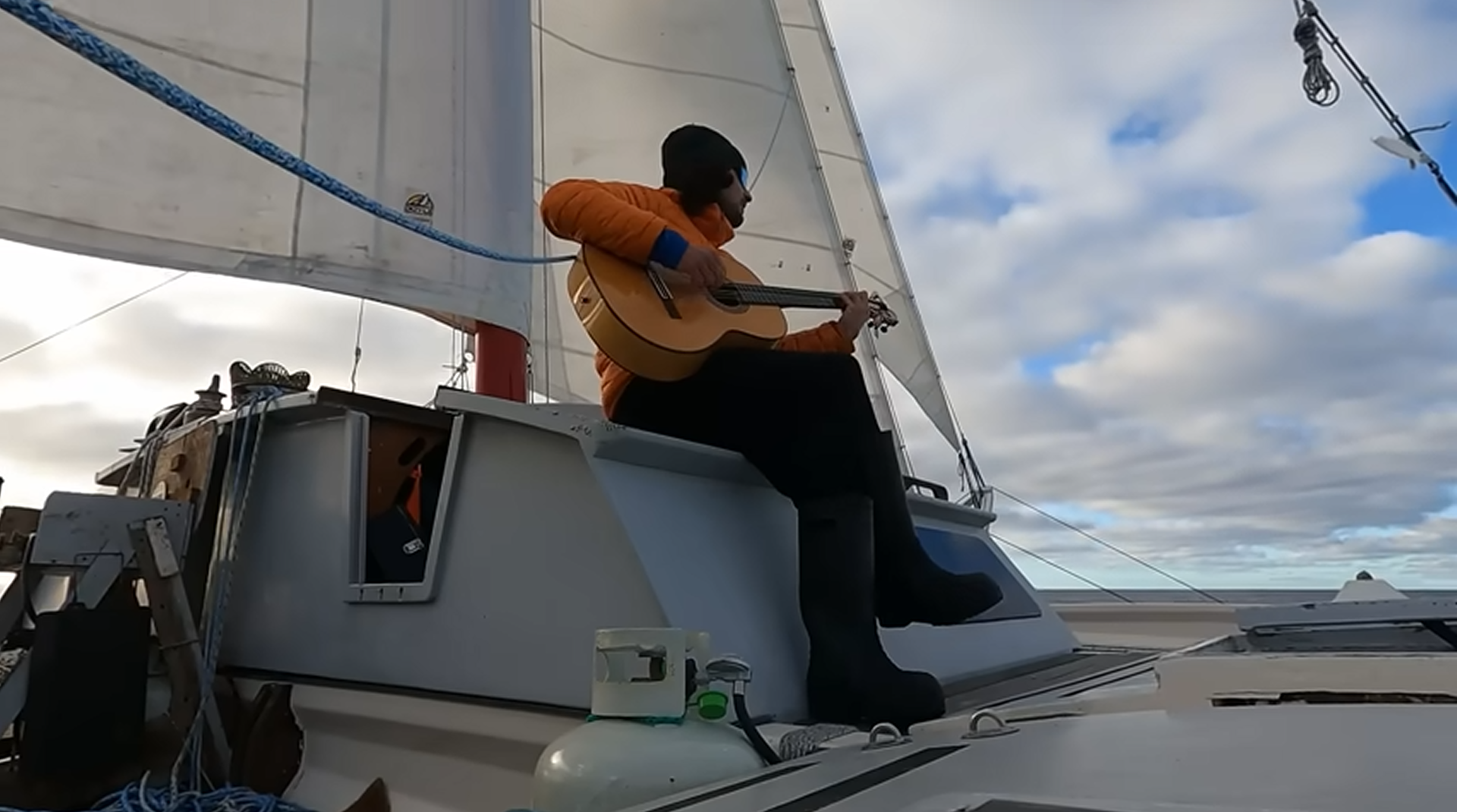
PostScript
这是我加入Uncommon翻译、整理的第一篇文章,但我非常喜欢这篇采访。
东伦敦运河河岸有很多风格迥异的船,我每次路过都会对在都市里的船居生活产生很多兴趣,所以Dominic作为一位成功程序员对船居生活的分享也为我提供了一些新的角度。Dominic思想非常活跃、善于观察和思考,他对于人类历史、考古、传统航海以及现代科技相结合的独特观察角度让我印象十分深刻。尤其是他对于人类与工具、文化的关系的思考让我觉得他真正地会去探索事物、事件的本源,这种思考能力和思考习惯是我在当下快节奏、碎片化生活中有所缺失的,而这恰恰也是感受生活、找寻乐趣的重点。同时,在翻译和整理这篇采访稿时我觉得一个有意思的点也在于可以直接地感受到Dominic的热情和思考,能以旁观者的视角跟随他去“被动地”产生一些我自己的观点。此处偷偷羡慕Jiang一秒——能有机会和各行各业、不同生活方式的朋友们进行探讨和交流,太幸福啦!
还有一点让我印象深刻的是Dominic有关饮食作为人类社会纽带的观点,我非常赞同。那一段让我想到了我很喜欢的一部电影《饮食男女》。我认同人性的欲望主要源自吃这件事,食物和吃饭是创造和体现情感关系的一种重要手段。
总之,我很享受这次的工作经历。从访谈者到编辑团队,大家都人味儿满满,我也有幸能在此过程中去感受、思考、输出。期待未来更多的合作,期待一同观察生活,抓住细微的脑洞和心情!
☀️ 专栏相关文章
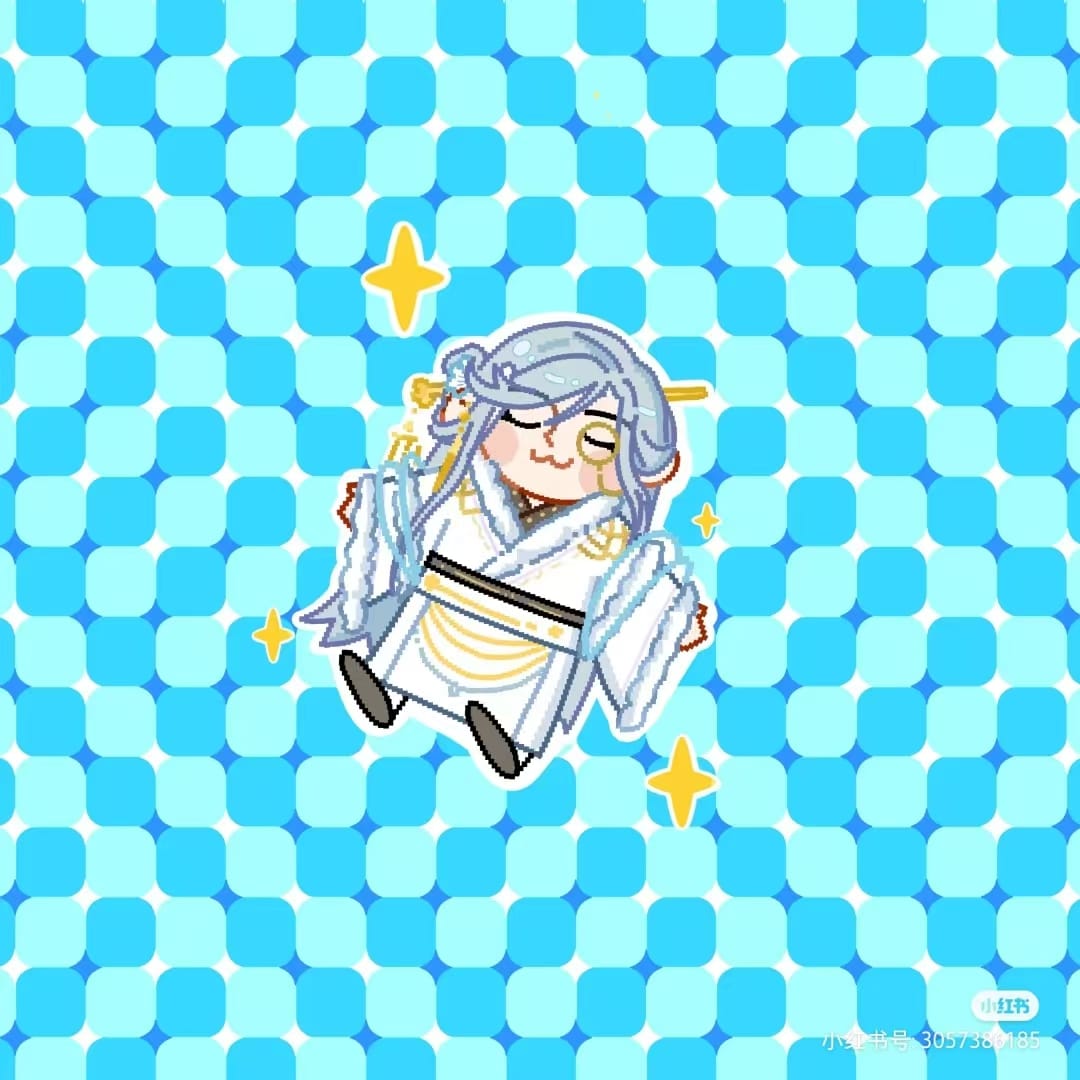







Who we are 👇
Uncommons
区块链世界内一隅公共空间,一群公共物品建设者,在此碰撞加密人文思想。其前身为 GreenPill 中文社区。
Twitter: x.com/Un__commons
Newsletter: blog.uncommons.cc/
Join us: t.me/theuncommons
Social Layer
Social Layer 是一个模块化社交基础设施,旨在帮助全球范围内的快闪城市(Popup City)、意向性社区(Intentional Community)和分布式社群节点的运营、扩展和相互连接。
Twitter: x.com/SocialLayer_im
Matters: matters.town/@sociallayer_im
Join us: t.me/sociallayer_im
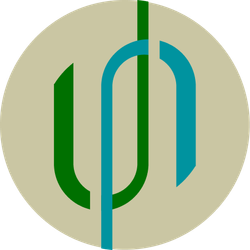

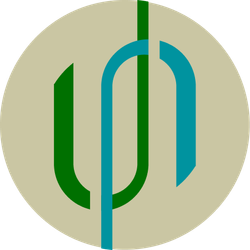
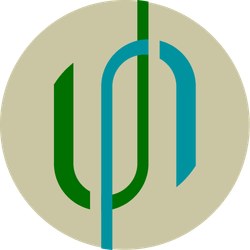
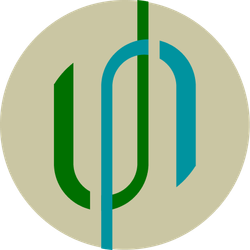
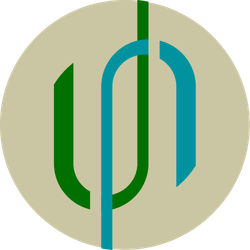
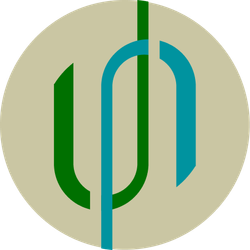
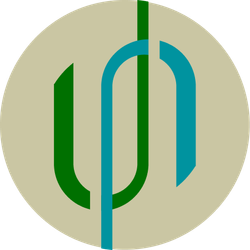
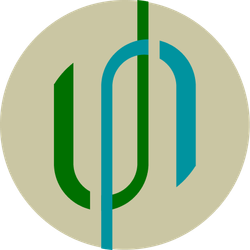
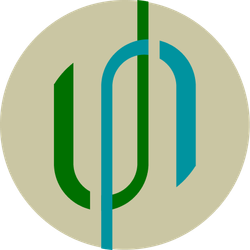
Discussion